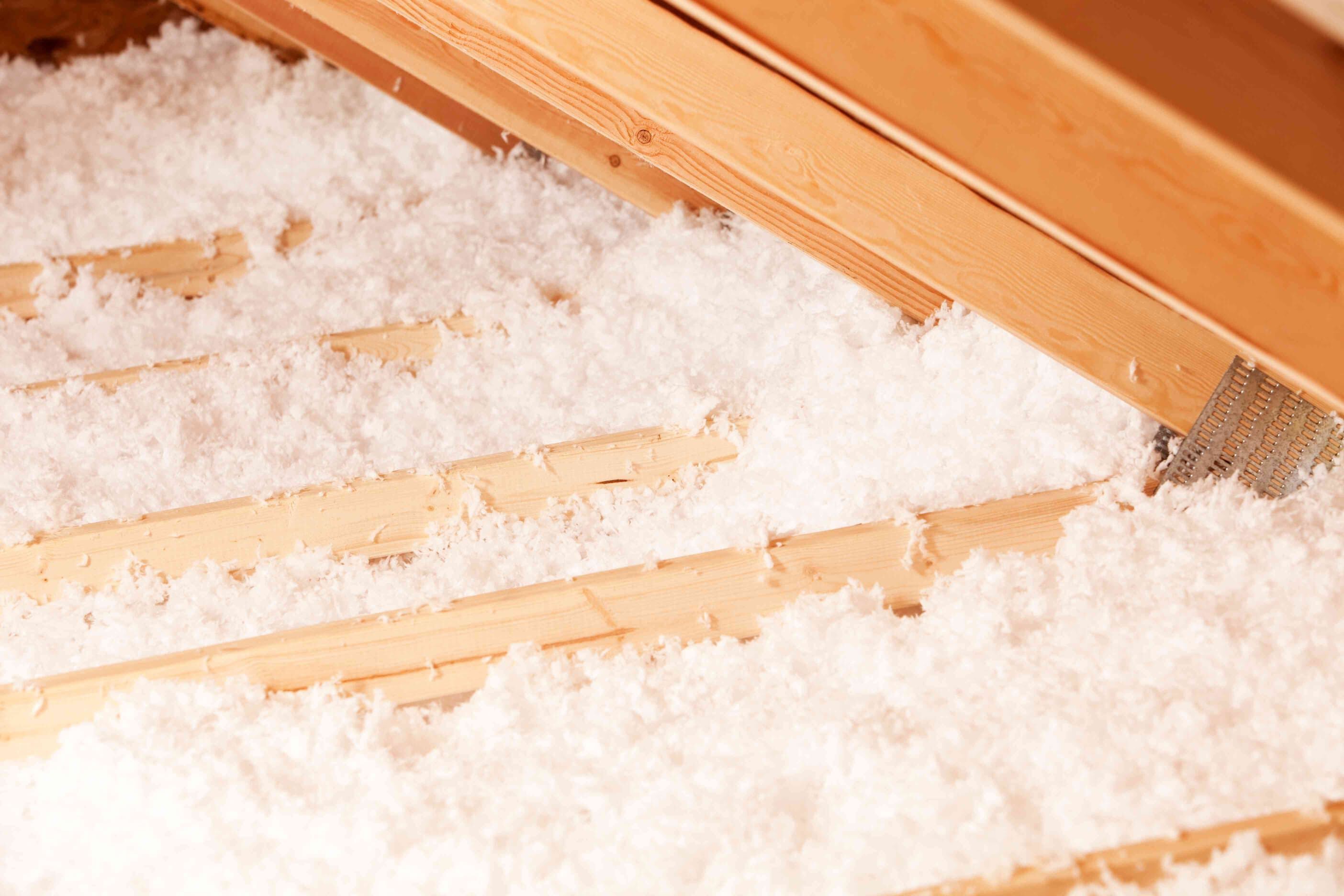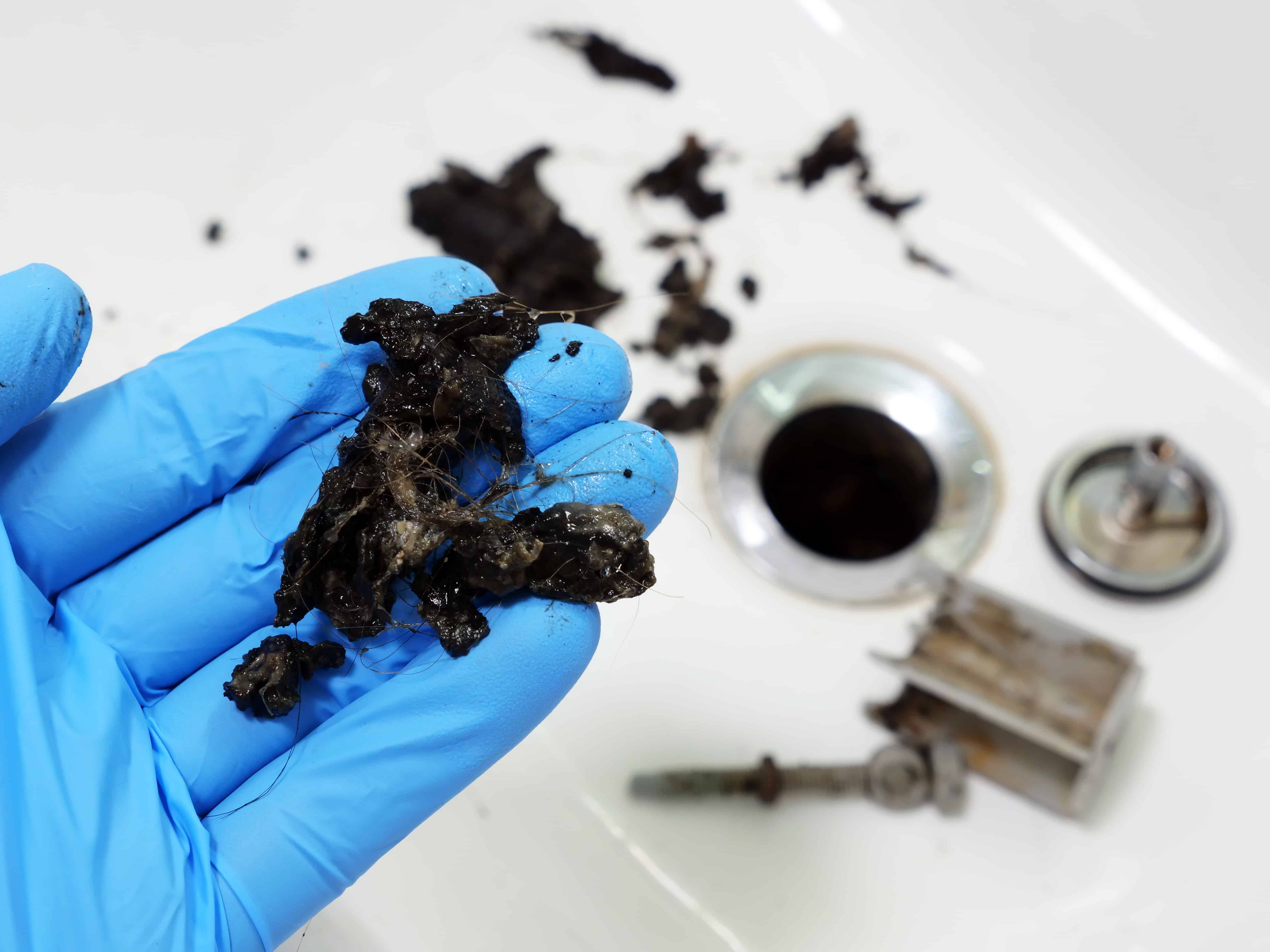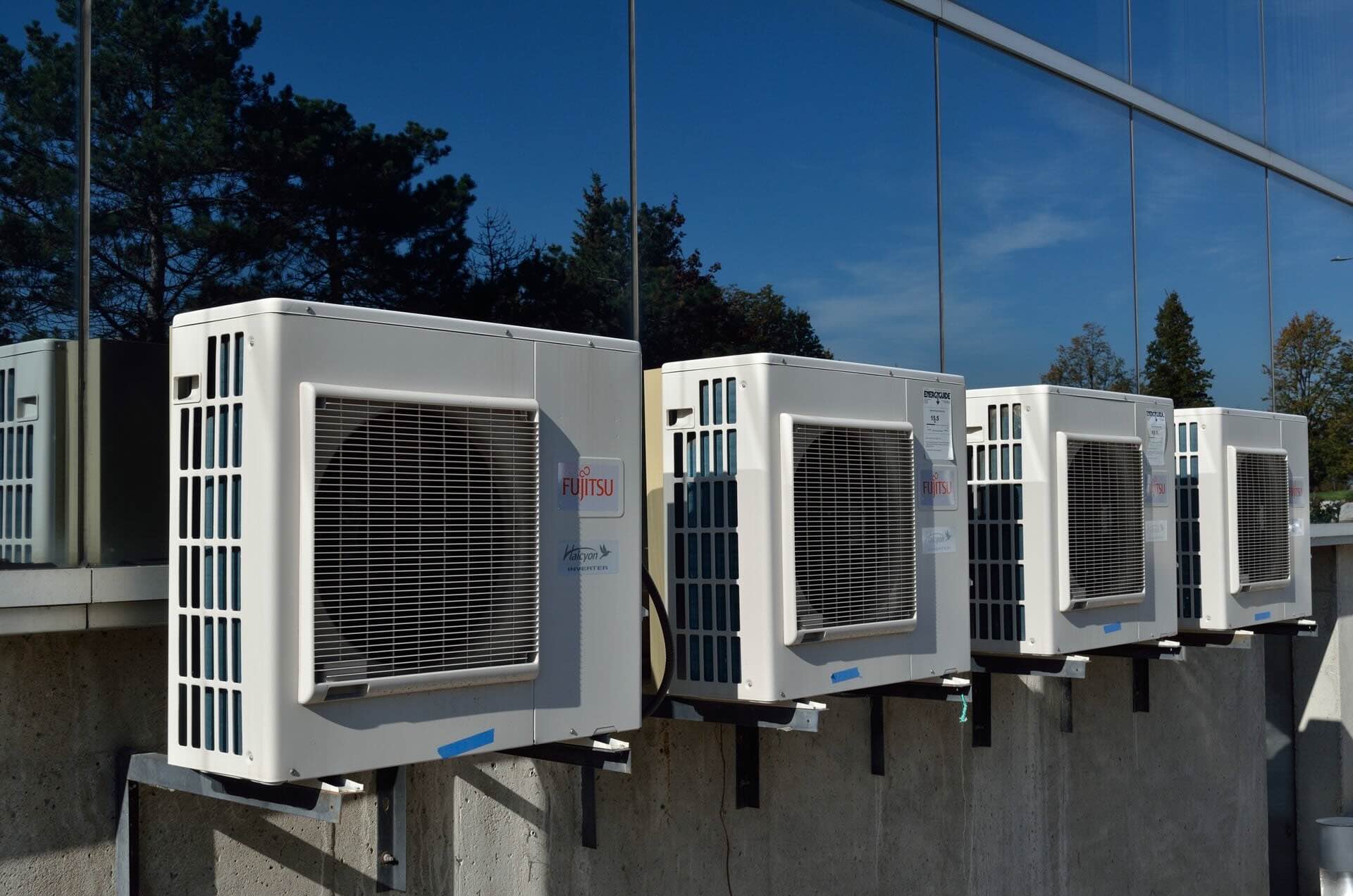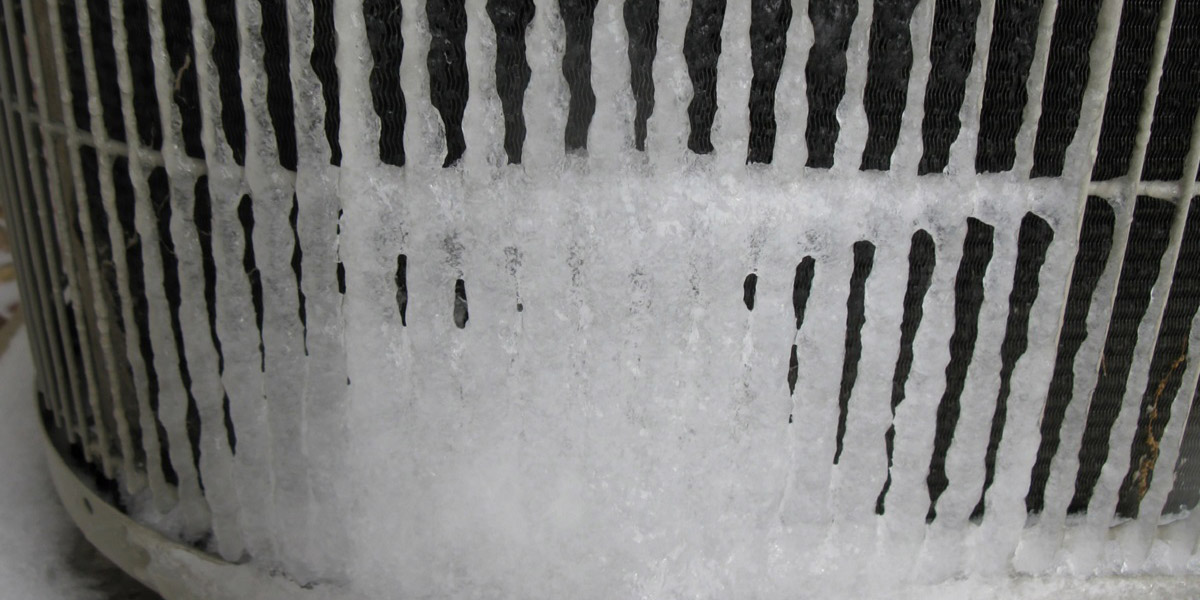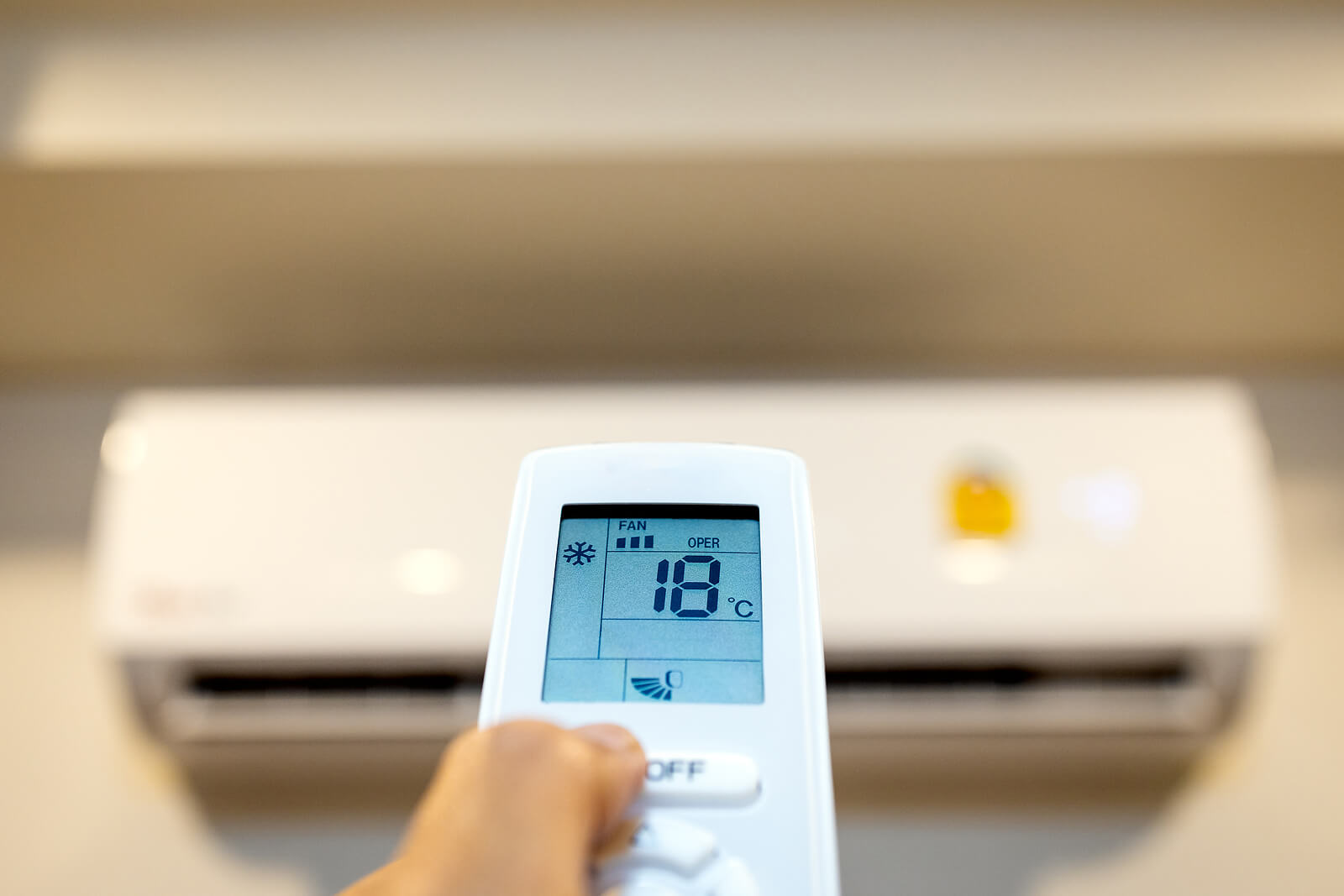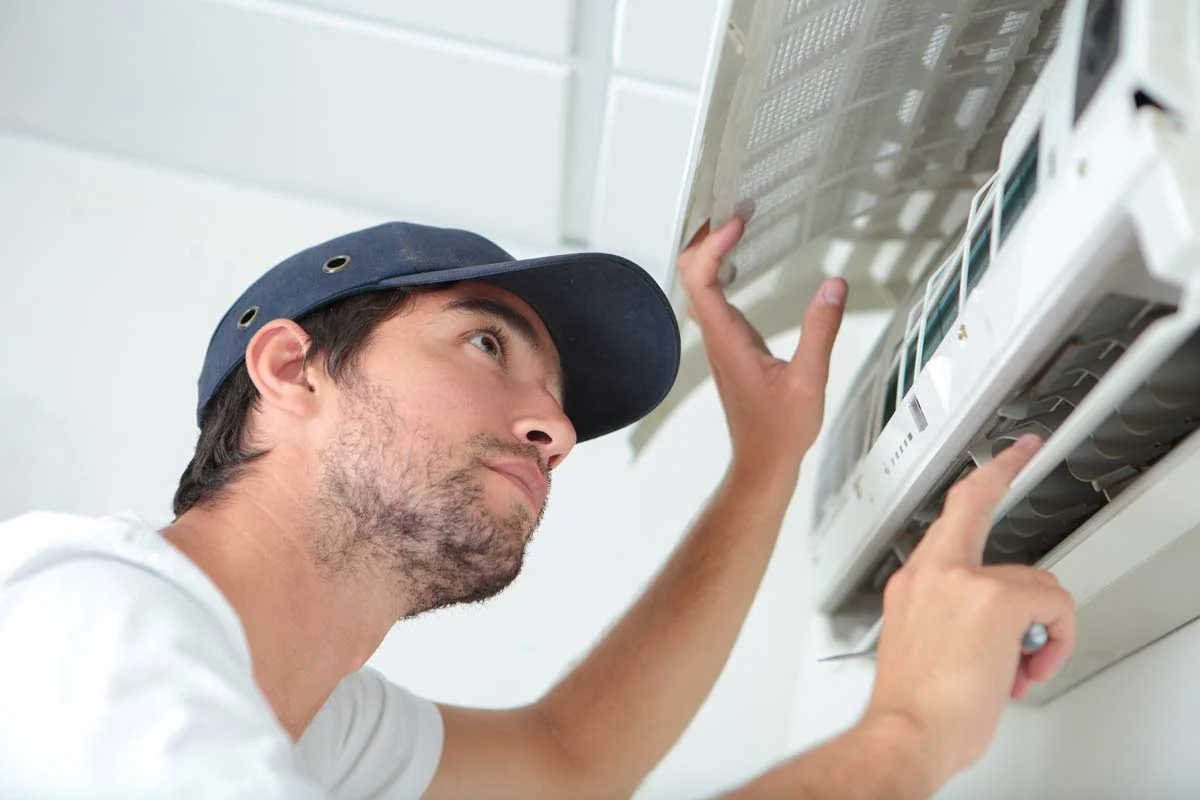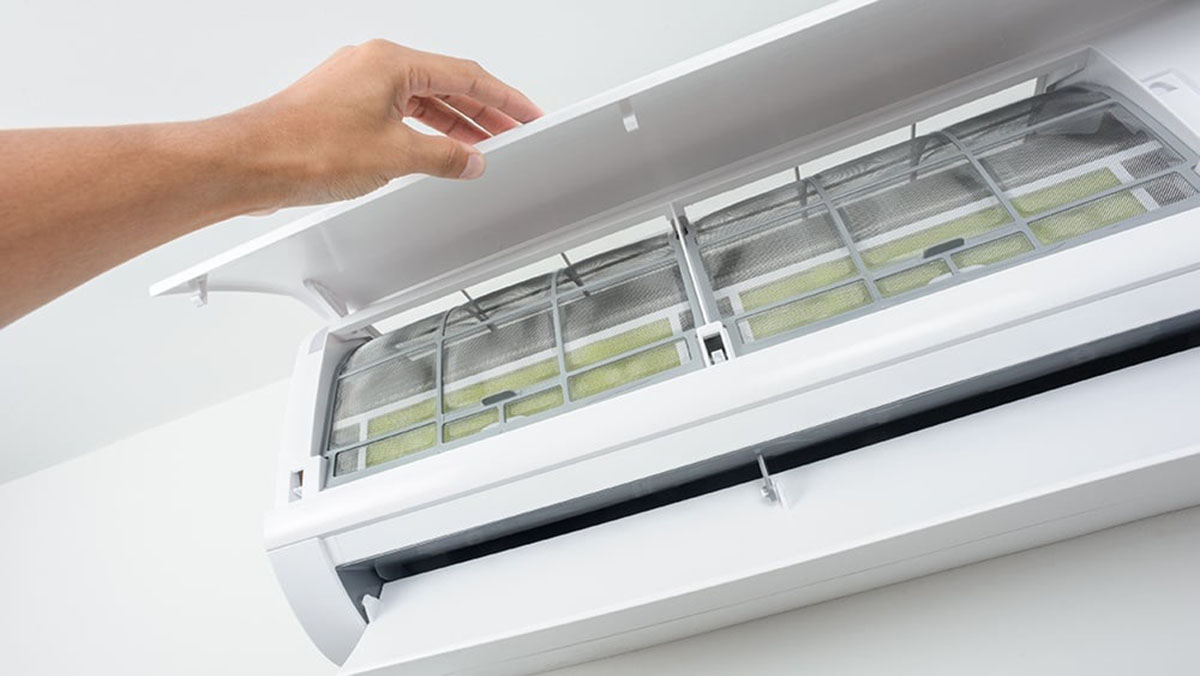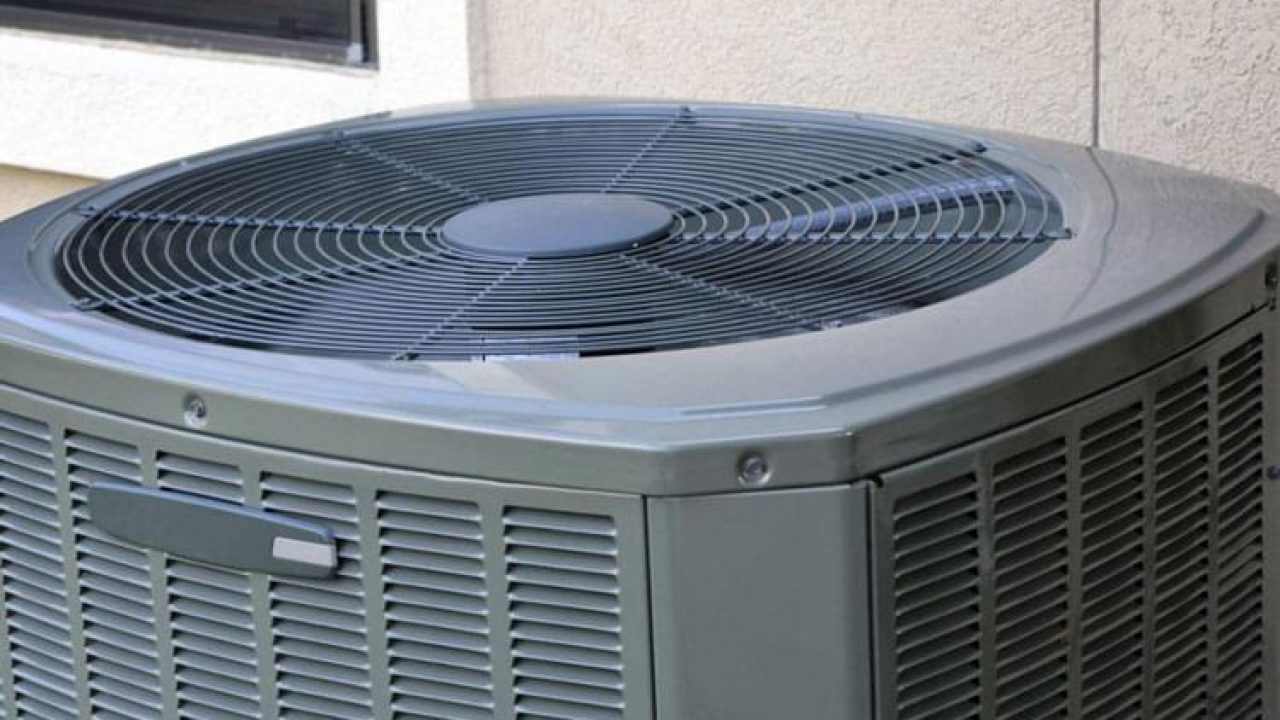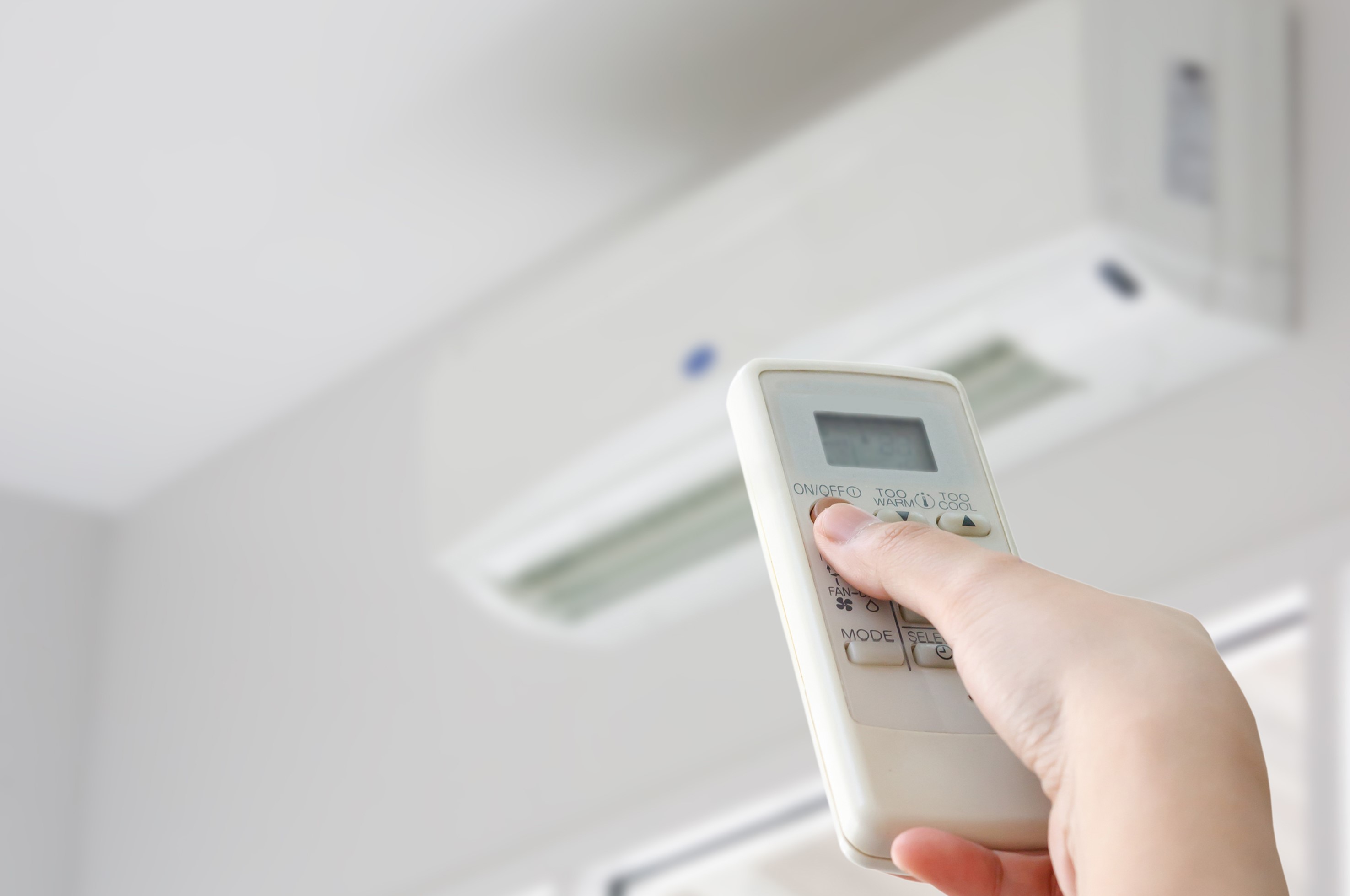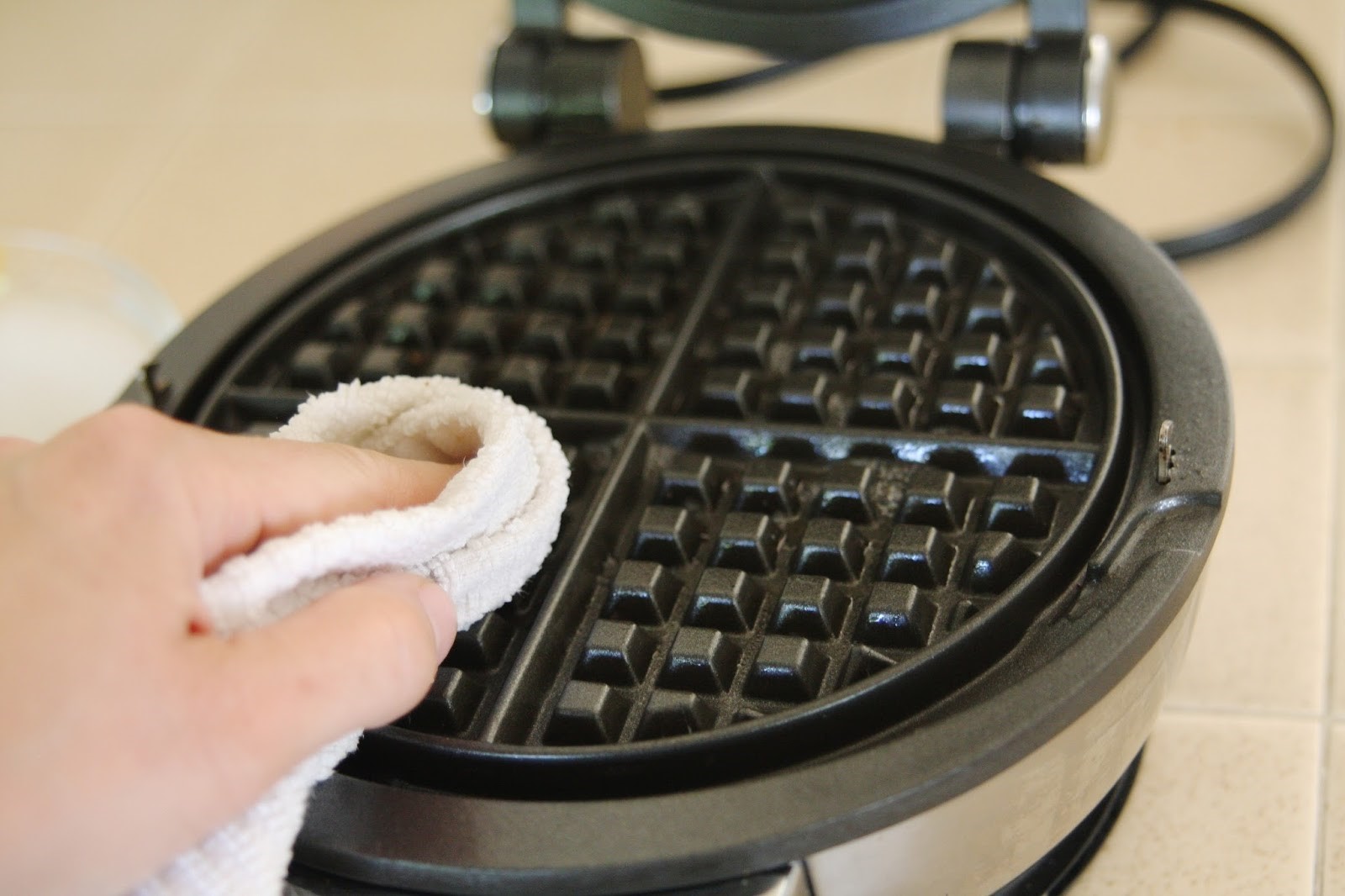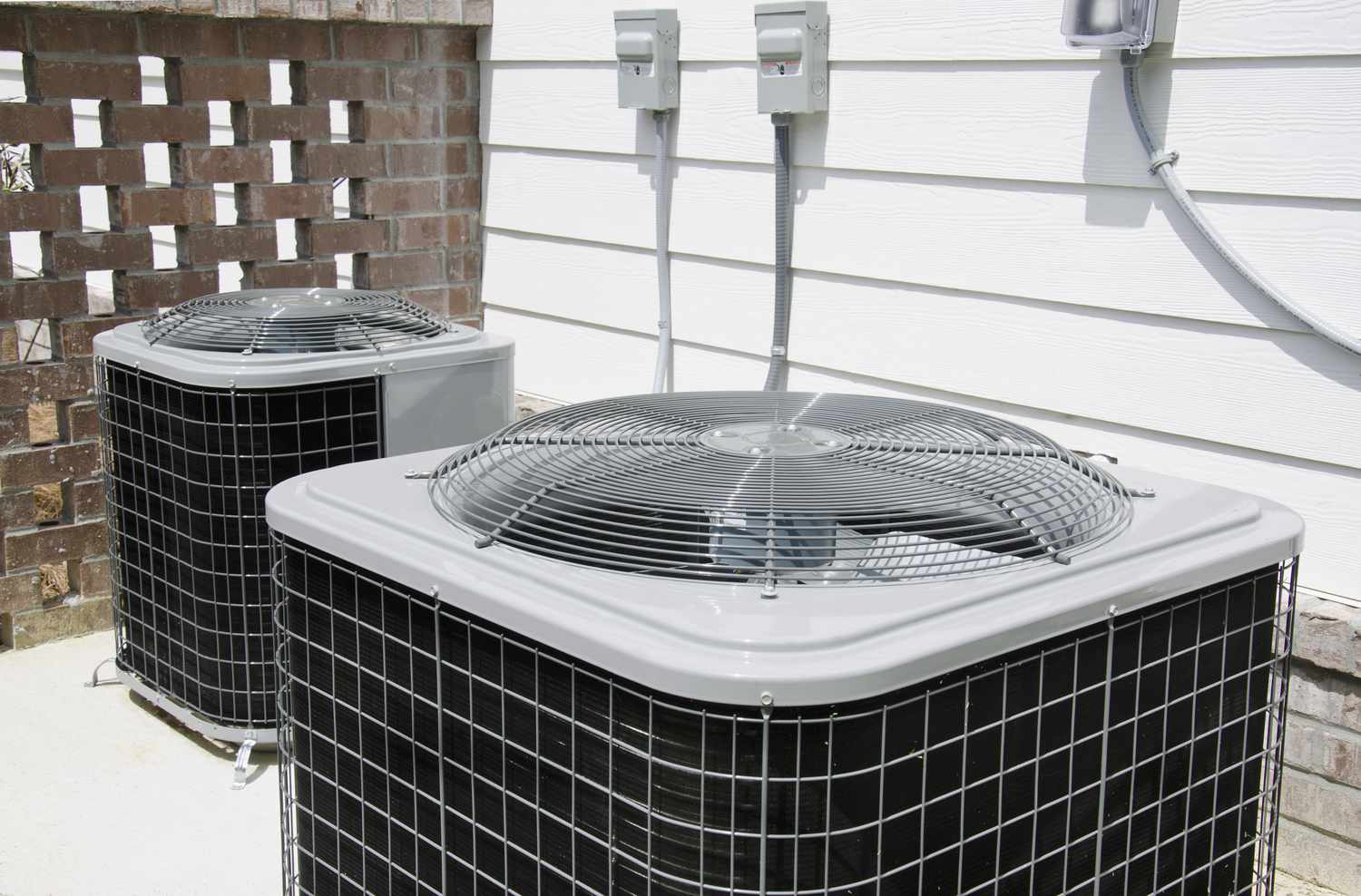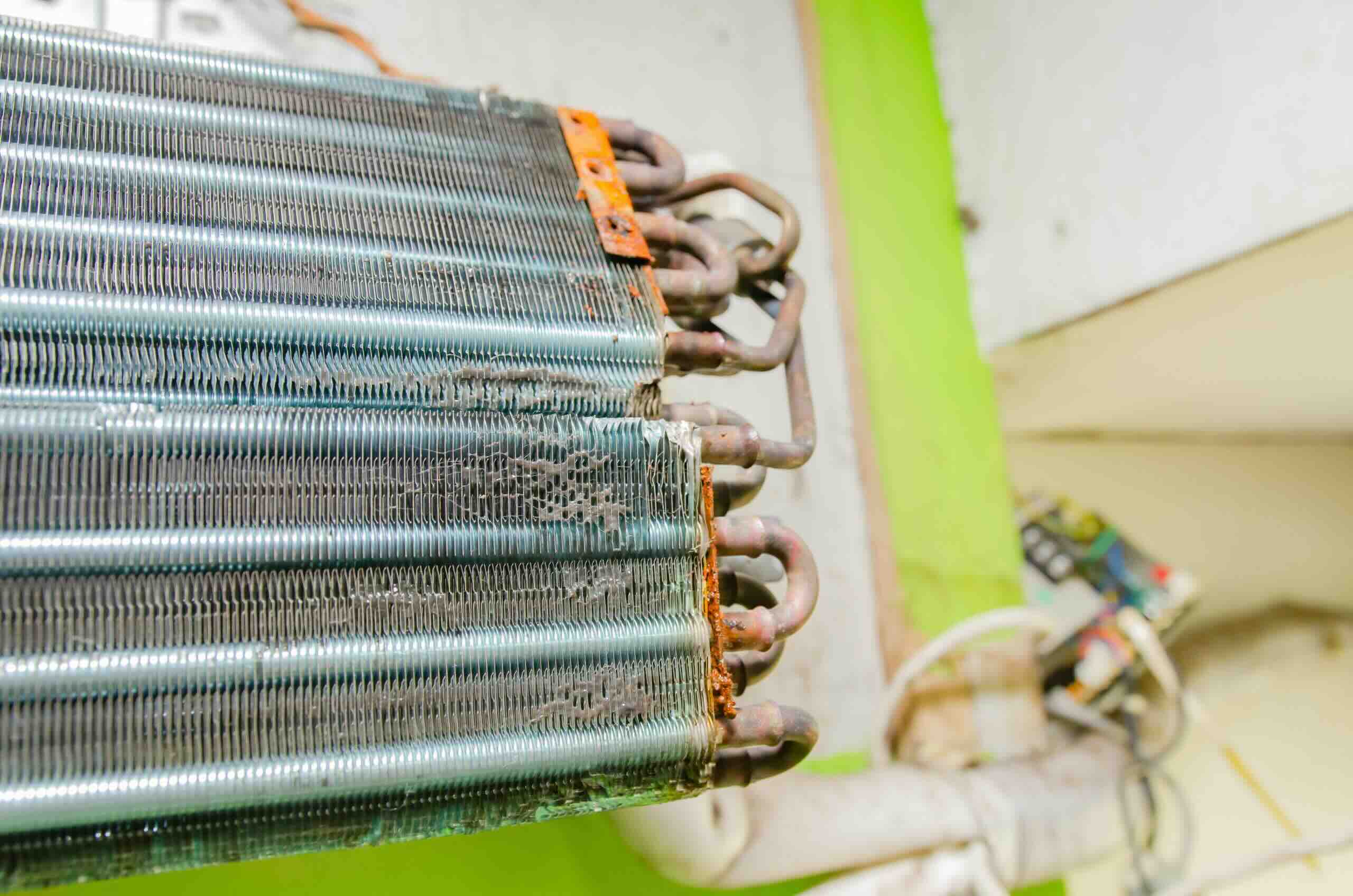Home>Home Maintenance>What Is The Black Stuff In My Air Conditioner
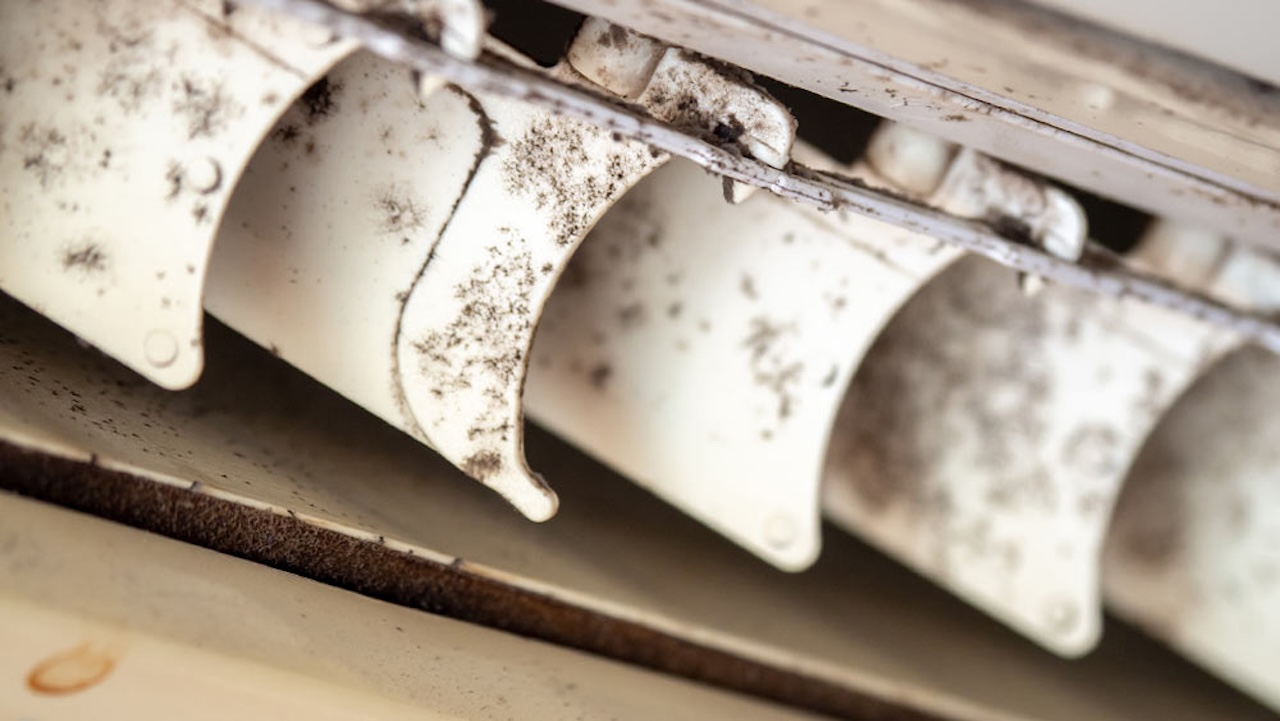

Home Maintenance
What Is The Black Stuff In My Air Conditioner
Modified: October 28, 2024
Discover what the mysterious black substance in your air conditioner is and how it can be prevented with regular home maintenance.
(Many of the links in this article redirect to a specific reviewed product. Your purchase of these products through affiliate links helps to generate commission for Storables.com, at no extra cost. Learn more)
Introduction
Do you ever notice black stuff in your air conditioner? It can be a cause for concern and may indicate an underlying issue that needs to be addressed. In this article, we will explore the possible causes of the black stuff in your air conditioner, the effects it can have, and how to get rid of it.
Key Takeaways:
- Regular cleaning and maintenance of your air conditioner, including changing air filters and cleaning condensate drain lines, can prevent the appearance of black substances and improve indoor air quality.
- Using air purifiers and dehumidifiers can help reduce the presence of black substances in your air conditioner, creating a cleaner and healthier living environment for you and your family.
Read more: What Is The Black Stuff In My Bathtub
Causes of the black stuff in air conditioner
There are several reasons why you might find black stuff in your air conditioner. Here are the most common culprits:
1. Mold and mildew growth: When moisture accumulates in your air conditioner, it creates the perfect environment for mold and mildew to thrive. These fungal growths can appear as black or dark green patches or spots.
2. Dirty air filters: If your air filters are clogged or haven’t been replaced regularly, they can become a breeding ground for dirt, dust, and other particles. This buildup can turn black and be blown back into your home.
3. Blocked condensate drain line: The condensate drain line is responsible for removing excess water from your air conditioning system. If it becomes clogged with dirt, algae, or other debris, it can lead to water backup and mold growth, resulting in the black stuff.
4. HVAC system malfunction: A malfunctioning HVAC system can cause a wide range of issues, including black substances in the air conditioner. This can be due to problems with the evaporator coil, refrigerant leaks, or other mechanical failures.
It’s important to note that the presence of the black stuff doesn’t always indicate a serious problem. However, it should be addressed to prevent further issues and maintain good indoor air quality.
Lorem ipsum dolor sit amet, consectetur adipiscing elit. Sed eleifend enim eu urna aliquet, tristique dapibus leo tincidunt. Vivamus interdum mauris ut nulla blandit, eu aliquet tortor rutrum. Suspendisse potenti. Donec a magna efficitur, sodales odio vel, luctus mauris. Donec sit amet nisi nulla. Phasellus a ultrices nunc. Mauris luctus convallis ipsum id elementum. Aliquam scelerisque leo nunc, id feugiat ipsum gravida in. Curabitur eleifend felis in ligula ullamcorper scelerisque. Sed efficitur sagittis elit vel elementum. Nam sed nunc in diam varius semper in at ex. In eget lectus massa. Sed sed pharetra magna. In tortor felis, suscipit id lacus eu, tristique porta nunc.
Mold and mildew growth
One of the common causes of the black stuff in your air conditioner is mold and mildew growth. These fungal organisms thrive in damp and dark environments, making your air conditioner an ideal breeding ground.
When moisture is present in your air conditioning system, such as condensation on the evaporator coil or in the condensate drain pan, it can create the perfect conditions for mold and mildew to grow. The black stuff you see could be the visible manifestation of this fungal growth.
Mold and mildew not only pose a risk to your air conditioner but also to your health. When mold spores are released into the air, they can be inhaled and cause respiratory problems, allergies, and even trigger asthma attacks. If you notice a musty smell along with the black stuff, it’s a strong indication of mold or mildew presence.
To prevent mold and mildew growth in your air conditioner, regular cleaning and maintenance are crucial. Here are some steps you can take:
- Change air filters regularly: Dirty and clogged air filters not only reduce the efficiency of your air conditioner but also provide a haven for mold and mildew to thrive. Make it a habit to change your air filters every one to three months, depending on the manufacturer’s recommendations.
- Clean the condensate drain line: Check your condensate drain line for any blockages. If you notice water backup or mold growth near the drain line, it’s a sign of a clog. Use a wet-dry vacuum or a pipe cleaner to remove the obstruction and prevent mold growth.
- Install UV lights: UV lights installed near the evaporator coil can inhibit the growth of mold and mildew. These lights emit ultraviolet radiation that sterilizes the air and reduces the chances of mold spores taking hold.
- Maintain humidity levels: Keep the humidity levels in your home between 30% to 50%. High humidity promotes mold growth, while low humidity can cause dryness and discomfort. Use dehumidifiers to regulate humidity if necessary.
If you suspect a significant mold or mildew infestation in your air conditioner, it’s best to consult a professional HVAC technician. They can assess the situation, conduct a thorough cleaning, and offer solutions to prevent future growth.
Dirty air filters
Dirty air filters are another common culprit behind the black stuff in your air conditioner. Air filters are designed to capture dust, dirt, and other particles to improve the indoor air quality. However, when they become clogged and dirty, they can contribute to the appearance of black substances in your air conditioner.
When air filters are clogged, they are less effective in trapping particles, allowing them to circulate through your HVAC system. Over time, these particles can accumulate and turn black, leading to the black stuff you may notice in your air conditioner.
Aside from the aesthetic concern, dirty air filters can cause several issues:
Reduced airflow: A clogged air filter restricts the airflow in your HVAC system, making it work harder to deliver conditioned air. This can lead to reduced cooling efficiency, longer run times, and increased energy consumption.
Poor indoor air quality: As the air filters become saturated with particles, they are less effective in trapping allergens, dust, and other pollutants. This can result in poor indoor air quality, leading to respiratory problems, allergies, and overall discomfort.
To prevent the build-up of the black stuff in your air conditioner due to dirty air filters, it’s essential to follow a regular maintenance schedule. Here are some steps you can take:
- Check the air filters: Inspect your air filters at least once a month to see if they are dirty or clogged. If you can visibly see dirt or debris on the filter, it’s time for a replacement.
- Replace air filters: The frequency of air filter replacement depends on various factors, such as the type of filter and the level of pollutants in your home. As a general guideline, it’s recommended to replace disposable filters every 1 to 3 months. Washable filters should be cleaned according to the manufacturer’s instructions.
- Choose quality filters: Invest in high-quality air filters that are designed to capture smaller particles. Look for filters with a high MERV (Minimum Efficiency Reporting Value) rating to ensure effective filtration.
Regularly changing and maintaining clean air filters not only helps prevent the presence of the black stuff in your air conditioner but also improves the overall performance and lifespan of your HVAC system. It also promotes better indoor air quality, ensuring a healthier and more comfortable living environment.
Blocked condensate drain line
The condensate drain line plays a crucial role in removing the excess water that is produced by your air conditioner during the cooling process. However, over time, this drain line can become blocked or clogged, leading to issues such as water backup and the growth of black substances in your air conditioner.
When the condensate drain line is blocked, it prevents the proper drainage of water, causing it to back up and potentially overflow into your air conditioning system. This stagnant water can become a breeding ground for mold, mildew, and other bacteria, resulting in the appearance of black substances.
Here are some common causes of a blocked condensate drain line:
- Dirt and debris: Dust, dirt, and debris can accumulate in the condensate drain line over time, leading to blockages.
- Algae growth: Algae thrive in dark and damp environments, making the condensate drain line an ideal place for growth. As algae multiply, they can clog the drain line and cause water backup.
- Improper installation: If the condensate drain line was not installed correctly or has become disconnected, it can lead to blockages and water leakage.
When the condensate drain line is blocked, it can have several effects on your air conditioning system:
Reduced cooling efficiency: A clogged drain line can cause the evaporator coil to freeze up, reducing the efficiency of your air conditioner. This can result in longer cooling times and increased energy consumption.
Water damage: If the condensate drain line overflows due to a blockage, it can cause water damage to your air conditioning system and surrounding areas.
To prevent blockages in the condensate drain line and eliminate the black substances in your air conditioner, here are some steps you can take:
- Regular maintenance: Include checking and cleaning the condensate drain line as part of your regular maintenance routine. Clear out any visible debris or build-up.
- Use vinegar or bleach: Periodically flushing the condensate drain line with a mixture of vinegar or bleach and water can help prevent algae growth and remove any potential blockages. Consult your HVAC system’s manual or a professional technician for specific instructions.
- Install a condensate drain pan alarm: Consider installing a condensate drain pan alarm that can notify you if the level of water in the drain pan becomes too high. This can help you detect a blockage early on and prevent water damage.
If you suspect a blockage in the condensate drain line or are unsure how to address it, it is recommended to seek the assistance of a professional HVAC technician. They have the expertise and tools to diagnose and resolve the issue effectively.
Read more: Why Is There Black Stuff In My Ice Maker
HVAC system malfunction
A malfunctioning HVAC system can contribute to the appearance of the black stuff in your air conditioner. Various issues can arise within your HVAC system, which can result in the presence of black substances. Here are some common malfunctions that may lead to this problem:
- Evaporator coil problems: The evaporator coil is responsible for cooling the air in your air conditioner. If the coil is damaged, dirty, or frozen, it can hinder the cooling process and cause a build-up of black substances.
- Refrigerant leaks: Refrigerant leaks can reduce the efficiency of your air conditioner and lead to system malfunctions. This can result in poor cooling performance and the growth of black substances.
- Malfunctioning blower motor: The blower motor circulates air throughout your HVAC system. If it is not functioning correctly, it can result in inadequate airflow, reduced cooling efficiency, and potential issues with black substances.
- Ductwork problems: Damaged, disconnected, or dirty ductwork can lead to poor airflow and contaminants entering your air conditioner, causing black substances to appear.
Now, let’s explore the effects that the presence of black substances in your air conditioner can have:
- Poor air quality: The black stuff in your air conditioner can contaminate the air circulating in your home, contributing to poor indoor air quality. This can lead to respiratory issues, allergies, and discomfort for you and your family members.
- Reduced cooling efficiency: When black substances accumulate in your air conditioner, it can obstruct the airflow and reduce the cooling efficiency. This can result in longer cooling times, uneven cooling, and higher energy bills.
- Potential health hazards: Depending on the cause of the black substances, such as mold or bacteria growth, it can pose potential health hazards. Mold spores, for example, can cause respiratory problems and allergic reactions when inhaled.
If you suspect a malfunction within your HVAC system or notice the presence of black substances, it’s crucial to address the issue promptly. Consult with a professional HVAC technician to diagnose the problem and recommend suitable solutions to restore the functionality of your system and maintain good indoor air quality.
Poor air quality
Poor air quality is one of the significant effects of the presence of black substances in your air conditioner. When black substances, such as mold, mildew, or dirt, circulate within your HVAC system, they can contaminate the air that you breathe inside your home. This can have adverse effects on your health and overall well-being.
Here are some key points to understand about the impact of poor air quality:
- Respiratory issues: When you are exposed to indoor air pollutants, it can trigger or worsen respiratory problems such as allergies, asthma, and bronchitis. The black substances in your air conditioner can release allergens, irritants, and even toxic substances that can compromise your respiratory health.
- Allergic reactions: Mold spores, dust mites, and other allergens present in the black substances can cause allergic reactions in sensitive individuals. Symptoms may include sneezing, coughing, watery eyes, and congestion.
- Aggravation of existing conditions: Poor air quality can worsen the symptoms of individuals who already have respiratory conditions such as asthma or chronic obstructive pulmonary disease (COPD). It can lead to increased difficulty breathing, wheezing, and frequent exacerbations.
- Fatigue and discomfort: Breathing in polluted air can make you feel tired, lethargic, and uncomfortable. It may also affect your sleep quality, leading to daytime fatigue and reduced productivity.
- Long-term health effects: Prolonged exposure to poor air quality can have long-term health consequences. It has been linked to the development of respiratory diseases, cardiovascular problems, and even certain types of cancer.
To improve air quality in your home and mitigate the effects of black substances in your air conditioner, consider taking the following measures:
- Regular cleaning and maintenance: Keep your air conditioner and HVAC system clean by regularly cleaning or replacing air filters, ensuring proper drainage, and removing any visible black substances.
- Ventilation: Increase the ventilation in your home by opening windows and using exhaust fans in areas such as the kitchen and bathrooms. Good airflow helps in reducing indoor air pollutants.
- Use air purifiers: Consider investing in air purifiers with HEPA filters to remove airborne particles and improve the overall air quality in your home.
- Maintain humidity levels: Keep the humidity levels in your home between 30% to 50% to discourage mold and mildew growth. Use dehumidifiers if necessary.
By improving the air quality in your home, you can create a healthier and more comfortable living environment for you and your family. If you have concerns about the air quality or notice persistent black substances in your air conditioner, it is recommended to consult with a professional HVAC technician for a thorough assessment and appropriate solutions.
Reduced cooling efficiency
Another significant effect of the presence of black substances in your air conditioner is reduced cooling efficiency. When your air conditioning system is obstructed or contaminated, it can struggle to perform its primary function of cooling your home effectively. This can lead to various issues:
- Poor temperature control: The accumulation of black substances, such as mold or dirt, can impede the airflow within your air conditioner. This obstruction prevents the proper distribution of cool air throughout your home, resulting in uneven temperatures and hot spots.
- Longer cooling times: When your air conditioner is hampered by black substances, it has to work harder and longer to achieve the desired temperature. This prolonged cooling process can increase energy consumption and strain your HVAC system.
- Inefficient operation: A dirty or clogged air conditioner can lead to reduced overall efficiency. It may struggle to reach and maintain the set temperature, leading to frequent starts and stops, excessive energy usage, and higher utility bills.
Here are some key points to consider regarding how reduced cooling efficiency can impact your home and comfort:
- Increased energy consumption: When your air conditioner is not functioning optimally due to black substances, it requires more energy to cool your home. This can lead to higher energy bills and unnecessary energy consumption.
- Discomfort: Inefficiencies in your air conditioner can result in inadequate cooling, leaving you feeling uncomfortable in your own home, especially during hot summer months.
- Potential system damage: A compromised air conditioning system can be more prone to breakdowns, as it is working harder to maintain cooling efficiency. This can lead to costly repairs and the need for premature system replacements.
To address reduced cooling efficiency caused by the presence of black substances, consider taking the following actions:
- Regular cleaning and maintenance: Keep your air conditioner clean by regularly cleaning or replacing air filters, removing debris from coils, and ensuring proper airflow throughout the system. Follow manufacturer recommendations for maintenance schedules.
- Professional HVAC inspection: Schedule regular inspections and maintenance with a professional HVAC technician. They can assess the condition of your air conditioning system, clean any black substances, and identify any underlying issues that may be affecting cooling efficiency.
- Sealing and insulating: Ensure that your home is properly sealed and insulated to prevent air leaks and maintain cool air within your living spaces. This can help your air conditioner operate more efficiently.
By addressing reduced cooling efficiency and maintaining a clean and well-functioning air conditioner, you can improve the overall comfort of your home while preventing excessive energy consumption and unnecessary strain on your HVAC system.
The black stuff in your air conditioner is likely mold or mildew. To prevent this, regularly clean and replace air filters, and have your system inspected for any leaks or moisture buildup.
Potential health hazards
The presence of black substances in your air conditioner can pose potential health hazards to you and your family. Depending on the source of these substances, such as mold, bacteria, or allergens, exposure to them can lead to various health issues. Here are some key points to understand:
- Allergies and respiratory problems: Black substances like mold and mildew can release allergens and irritants into the air, triggering allergic reactions and exacerbating respiratory conditions such as asthma and allergies. Symptoms may include coughing, sneezing, wheezing, itchy eyes, and congestion.
- Asthma attacks: For individuals with asthma, exposure to mold spores, dust mites, or other airborne allergens can trigger asthma attacks. These attacks can result in coughing, difficulty breathing, chest tightness, and wheezing.
- Respiratory infections: Breathing in black substances contaminated with bacteria or fungi can increase the risk of respiratory infections, particularly in individuals with compromised immune systems or pre-existing respiratory conditions.
- Toxic effects: In some cases, black substances in your air conditioner can release toxins or mycotoxins, which can have adverse effects on your health. Prolonged exposure to certain types of mold or toxins may lead to neurological symptoms, fatigue, skin irritation, and other systemic problems.
Due to the potential health hazards associated with the black substances in your air conditioner, it is essential to take steps to get rid of them and improve the air quality in your home. Here are some measures you can take:
- Regular cleaning and maintenance: Clean your air conditioner regularly to remove any visible black substances. This includes cleaning air filters, coils, and other accessible parts of the system following manufacturer guidelines.
- Professional HVAC inspection: Schedule a professional HVAC inspection to thoroughly clean and inspect your air conditioning system. HVAC technicians have the expertise and tools to clean hard-to-reach areas, identify underlying issues, and ensure the proper functioning of your system.
- Air purifiers and dehumidifiers: Consider using air purifiers and dehumidifiers in your home to help filter the air and reduce moisture levels. Air purifiers with HEPA filters can capture small particles, while dehumidifiers can help prevent mold and mildew growth by reducing humidity.
- Address mold and mildew: If mold or mildew is present, it is crucial to eliminate the source and address the underlying moisture issue. Hiring a professional mold remediation specialist may be necessary for extensive or persistent mold problems.
Remember, if you have concerns about the black substances in your air conditioner or experience health symptoms, consult with a healthcare professional. They can provide guidance on managing any health issues and recommend appropriate measures to improve air quality in your home.
Regular cleaning and maintenance
Regular cleaning and maintenance of your air conditioner is crucial in preventing the presence of black substances and ensuring optimal performance. By incorporating these tasks into your routine, you can maintain a clean and healthy air conditioning system. Here are some steps to follow for regular cleaning and maintenance:
- Clean or replace air filters: Air filters play a vital role in trapping dust, dirt, and other particles. Over time, they can become clogged, reducing airflow and allowing black substances to accumulate. Check your air filters regularly and clean or replace them according to the manufacturer’s guidelines. This is typically recommended every one to three months.
- Clean evaporator and condenser coils: The evaporator and condenser coils can accumulate dirt, dust, and other debris, leading to reduced cooling efficiency and the growth of black substances. Regularly clean these coils using a soft brush or vacuum to remove any build-up. Avoid using harsh chemicals or excessive force, as this can damage the delicate fins.
- Clean condensate drain line: The condensate drain line is responsible for removing excess water from your air conditioner. Over time, it can become clogged with dirt, algae, or other debris, leading to water backup and the growth of black substances. Regularly check the condensate drain line for any blockages and remove them using a wet-dry vacuum or a pipe cleaner.
- Dust and clean air vents: Dust and debris can accumulate on air vents, obstructing airflow and potentially spreading black substances throughout your home. Regularly dust and clean the air vents using a soft cloth or a vacuum with a brush attachment.
- Inspect and clean fan blades: Dirt and dust can accumulate on the fan blades, affecting their performance and potentially spreading contaminants. Inspect the fan blades regularly and wipe them clean using a damp cloth or a soft brush.
- Check for leaks and seal any gaps: Inspect your air conditioner for leaks or any gaps in the ductwork. Leaky ducts can introduce outside contaminants and contribute to the presence of black substances. Seal any gaps using foil tape or mastic sealant to ensure a tight and properly sealed system.
Remember to always follow the manufacturer’s instructions and safety guidelines when performing any cleaning or maintenance tasks. If you are unsure or uncomfortable with any aspect of the cleaning process, it is best to consult with a professional HVAC technician.
By incorporating regular cleaning and maintenance into your air conditioning system, you can prolong its lifespan, improve its efficiency, and reduce the likelihood of black substances appearing. It also promotes better indoor air quality and helps create a clean and comfortable living environment.
Professional HVAC Inspection
While regular cleaning and maintenance are important for your air conditioner, scheduling a professional HVAC inspection is equally essential to ensure the optimal performance and longevity of your system. A trained HVAC technician has the expertise and tools to conduct a thorough assessment, identify potential issues, and provide appropriate solutions. Here is what you can expect during a professional HVAC inspection:
- Comprehensive system assessment: A professional HVAC technician will conduct a comprehensive inspection of your air conditioning system. This includes examining the components, such as the condenser, evaporator coils, blower motor, condensate drain line, and electrical connections, to ensure they are functioning properly and free from any black substances or debris.
- Cleaning and maintenance: During the inspection, the technician will perform necessary cleaning tasks that may go beyond what you can do on your own. This includes deep cleaning of components like coils, blower blades, and condensate drain lines to remove any stubborn black substances or build-up.
- Identifying potential issues: The HVAC technician will identify any potential issues or signs of damage that may be contributing to the presence of black substances. This can include leaks, refrigerant issues, or system malfunctions that can impact the performance and air quality of your air conditioner.
- Recommendations and solutions: Based on their assessment, the HVAC technician will provide recommendations on how to address any identified issues. This may involve repairs, part replacements, or adjustments to improve the efficiency and functioning of your air conditioning system. They can also advise on measures to prevent future black substance growth and ensure optimal performance.
- System optimization: In addition to addressing immediate concerns, a professional HVAC inspection is an opportunity to optimize your system’s performance. The technician may offer suggestions for improving energy efficiency, such as adjusting thermostat settings, upgrading insulation, or sealing ductwork leaks.
Scheduling a professional HVAC inspection at least once a year, preferably before the cooling season, is recommended. However, if you notice any issues with your air conditioner, such as persistent black substances or reduced cooling efficiency, it is best to contact a professional technician as soon as possible.
By investing in a professional HVAC inspection, you can ensure that your air conditioning system operates at its best, minimizes the presence of black substances, and provides you with optimal comfort and indoor air quality. Remember to choose a reputable and certified HVAC company or technician to perform the inspection for reliable and professional service.
Air Purifiers and Dehumidifiers
In addition to regular cleaning and maintenance, using air purifiers and dehumidifiers can significantly improve the air quality in your home and mitigate the presence of black substances in your air conditioner. These devices work in different ways to help create a cleaner and healthier living environment:
Air Purifiers:
Air purifiers are designed to filter and remove airborne particles, allergens, and contaminants from the air. They typically use filters, such as High-Efficiency Particulate Air (HEPA) filters, to capture microscopic particles that can contribute to poor air quality. Air purifiers can be particularly effective in removing dust, pet dander, pollen, mold spores, and other allergens that may be present in the air. By reducing the concentration of these particles, air purifiers can help alleviate allergies, respiratory issues, and the spread of black substances.
Read more: What Is The White Stuff In My Ice Maker
Dehumidifiers:
Dehumidifiers help regulate and reduce the humidity levels in your home. Excessive humidity can create a damp environment that promotes the growth of mold, mildew, and other fungi. By removing excess moisture from the air, dehumidifiers can inhibit the growth of black substances and create an inhospitable environment for allergens and bacteria. This can improve indoor air quality and prevent the spread of airborne contaminants.
Conclusion:
The presence of black substances in your air conditioner can be a cause for concern, impacting both the performance of your system and the indoor air quality in your home. By implementing regular cleaning and maintenance practices, addressing any underlying issues, and utilizing air purifiers and dehumidifiers, you can significantly reduce the presence of black substances and improve the overall air quality in your living space.
Remember to follow manufacturer guidelines and safety precautions when using air purifiers and dehumidifiers. It is also advisable to consult with a professional HVAC technician to ensure proper installation and compatibility with your specific HVAC system.
By taking these steps, you can create a clean, comfortable, and healthy environment for you and your family, ensuring that your air conditioner operates efficiently and provides optimal cooling performance while minimizing the risk of black substances and their associated health hazards.
Frequently Asked Questions about What Is The Black Stuff In My Air Conditioner
Was this page helpful?
At Storables.com, we guarantee accurate and reliable information. Our content, validated by Expert Board Contributors, is crafted following stringent Editorial Policies. We're committed to providing you with well-researched, expert-backed insights for all your informational needs.
